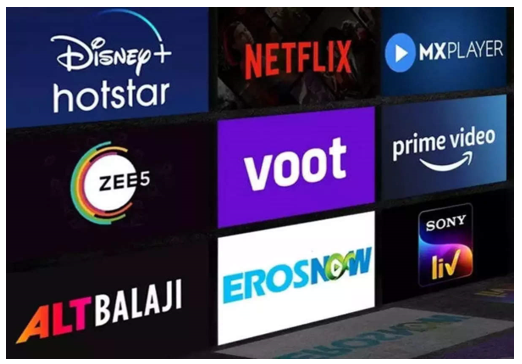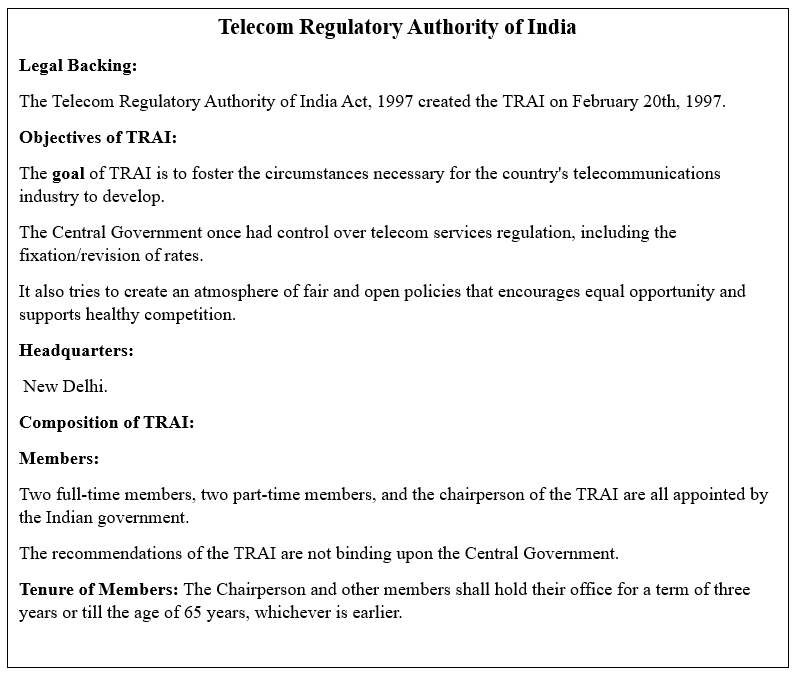- Courses
- GS Full Course 1 Year
- GS Full Course 2 Year
- GS Full Course 3 Year
- GS Full Course Till Selection
- Answer Alpha: Mains 2025 Mentorship
- MEP (Mains Enrichment Programme) Data, Facts
- Essay Target – 150+ Marks
- Online Program
- GS Recorded Course
- Polity
- Geography
- Economy
- Ancient, Medieval and Art & Culture AMAC
- Modern India, Post Independence & World History
- Environment
- Governance
- Science & Technology
- International Relations and Internal Security
- Disaster Management
- Ethics
- NCERT Current Affairs
- Indian Society and Social Issue
- NCERT- Science and Technology
- NCERT - Geography
- NCERT - Ancient History
- NCERT- World History
- NCERT Modern History
- CSAT
- 5 LAYERED ARJUNA Mentorship
- Public Administration Optional
- ABOUT US
- OUR TOPPERS
- TEST SERIES
- FREE STUDY MATERIAL
- VIDEOS
- CONTACT US
OTT COMMUNICATION SERVICES
OTT COMMUNICATION SERVICES
11-07-2023

Latest Context
Over-the-top (OTT) communication services including WhatsApp, Zoom, and Google Meet are being scrutinised by the Telecom Regulatory Authority of India (TRAI).
Facts about OTT Services
- Online content providers who offer streaming media as a stand-alone offering are considered "over-the-top" media services.
- The phrase is frequently used about video-on-demand services, but it may also be used to describe phone calling via the Internet, audio streaming, or messaging services.
- These data-based services have grown in popularity and usage across India, particularly since the Covid-19 epidemic.
- Between 2014 and 2022, India's monthly cellular data use increased by almost 156 times. Data consumption now generates revenue instead of conventional phone and SMS services.
What is the Current Regulatory Status of OTT Communication Services in India?
- In India, there is currently no formal regulatory structure in place for OTT communication services. Since 2015, TRAI has published some consultation papers on this subject, but no recommendations or rules have been finalised.
- TRAI advised against regulatory action for OTT platforms in September 2020, arguing that it should be left to market forces.
- However, it also recommended that the industry be watched closely and that intervention is carried out at the "appropriate time".
- A proper regulatory framework and "selective banning of OTT services" should be introduced by TRAI in 2022, according to the Department of Telecommunication (DoT), the nodal ministry for telecom policy and licencing.
Why Is It Important to Regulate OTT Communication Services?
- Achieving Parity Between OTT Platforms and TSPs: It's critical to foster fair competition between OTT platforms and telecom service providers (TSPs).
- The Indian Telegraph Act of 1885, the Wireless Telegraphy Act of 1933, and the Telecom Regulatory Authority of India Act of 1997 are only a few of the regulations that govern TSP in India.
- TSPs are subject to regulations and must pay taxes to the government to offer voice and SMS services.
- Additionally, they must uphold quality standards, provide security, and defend customers.
- OTT platforms, on the other hand, provide comparable services without having to deal with these constraints, giving them an edge.
- Additionally, they don't make donations to the USOF, or Universal Service Fund.
- The income and profitability of TSPs are impacted by this unfair competition, as are the government's earnings from the telecom industry.
- Legal Surveillance and National Security For public order and national security, OTT communication services must be regulated.
- To stop the dissemination of false information, the encouragement of violence, or the facilitation of criminal activity, OTT platforms should be subject to legitimate interception and surveillance by security services.
- Maintaining a safe and secure online environment is made possible by holding OTT platforms accountable for any unlawful content or conduct on their services.
Key Points of the Draft Telecommunications Bill, 2022 about OTT Services
- The Indian Telegraph Act of 1885, the Indian Wireless Telegraphy Act of 1933, and the Telegraph Wires (Unlawful Possession) Act of 1950 are the three laws that now regulate India's telecom industry. The Draft Telecommunication Bill, 2022 is a planned piece of legislation that aspires to replace them all.
- The proposed regulation would define telecommunication services to include over-the-top (OTT) messaging apps like WhatsApp, Signal, and Telegram.
- In India, it is suggested that OTT communication providers obtain a licence and abide by the same regulations as telecom players.
- These regulations cover a range of topics, including service standards and security precautions.

Must Check: IAS Coaching Centre In Delhi



